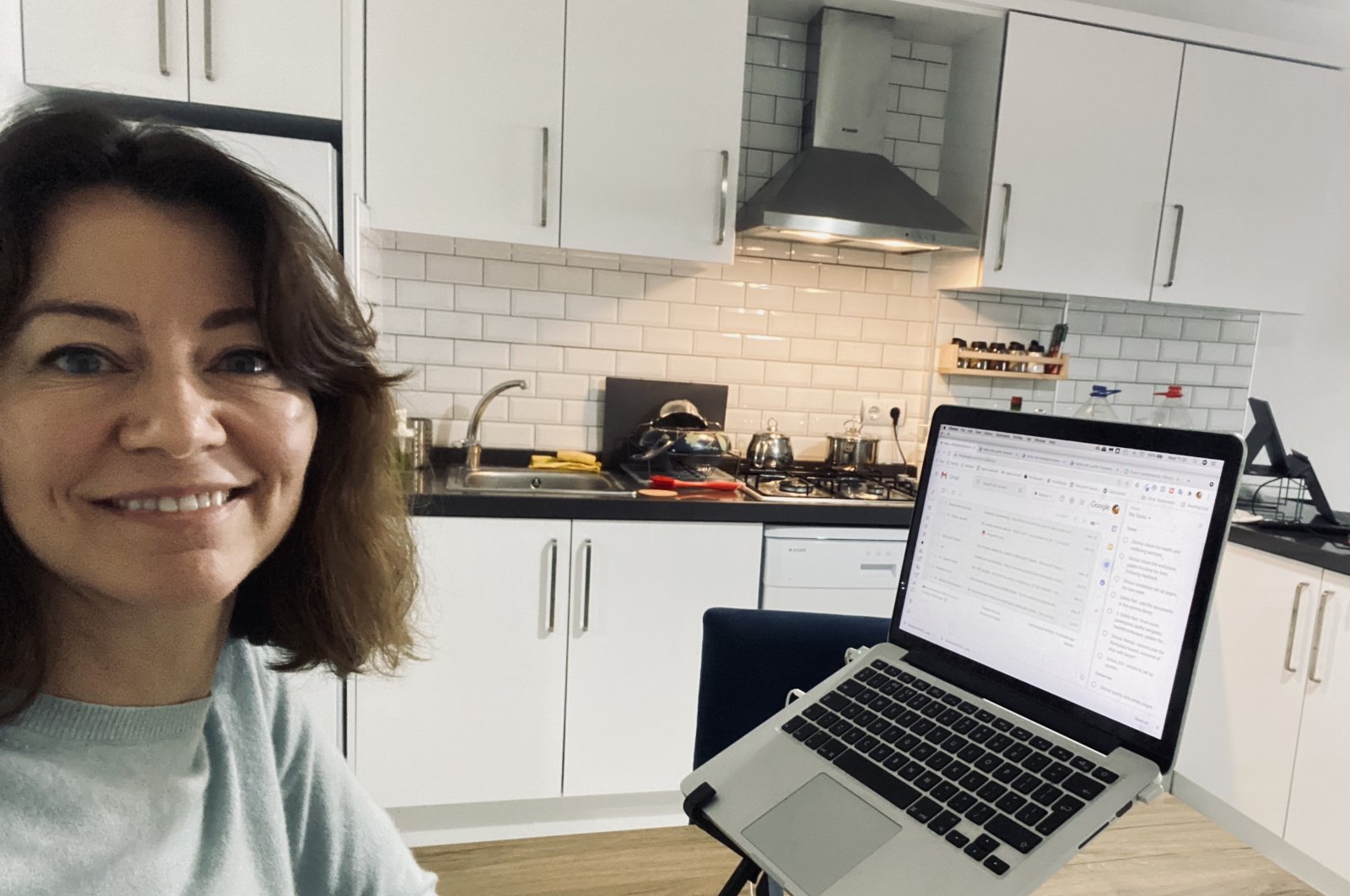
In a world where more people switch or are forced to switch to online jobs and work from home, being a digital nomad is a new lifestyle. With its comparatively low cost of living, Turkey is becoming an increasingly popular destination for them.
Now based in Turkey, Samantha Brown, 46, is a self-employed marketing consultant from the United Kingdom. Before embracing this new lifestyle in 2019, she had been working for the National Health Service. "My father died of cancer in 2019, and it made me reflect on my life,” she said. "I realized that I wanted to have a bit more freedom. I didn't want to work in an office anymore. I felt it was time for me to switch to freelancing, and be able to live in different countries and work from my laptop,” she told Anadolu Agency (AA) in a Zoom interview from Izmir, a province on Turkey’s Aegean coast.
Since then, Brown has been moving around and has lived in 15 countries. She first went to Bali, Indonesia and then to Thailand, and later to India, where she was staying when COVID-19 started spreading around the world.
Brown went back home during the first wave of the coronavirus and then proceeded to France in her camper van, thinking that it would be safer during the pandemic. "I am in Turkey for a month,” she said, adding that she is planning a flight to Sri Lanka. Besides Izmir, she has also been to the resort towns of Marmaris and Datça. Brown said she was pleased during her stay in Turkey, found transportation and accommodation convenient, and felt "very" safe.
Similarly, Antony Minkowski, a 34-year-old tech entrepreneur from Moscow, has been moving around since February. He started from Turkey and has been to 12 countries in a matter of 10 months. He is currently focusing on his new startup, Remotecamp, to bring together digital nomads or remote workers, including entrepreneurs and IT specialists. He has organized a series of bootcamps in countries, including Turkey, Portugal and Brazil. "Basically, we group digital nomads together so they don't need to travel alone,” he told AA in a Zoom interview from an apartment in Floiranopolis, Brazil. "They can even save money because we make it cheaper. Because you rent an apartment or a villa together."
He said the camp also helps freelancers learn from each other, collaborate and exchange knowledge. They recently organized camps in Antalya's Kaş on the Mediterranean coast of Turkey, Floiranopolis and in Madeira, Portugal – the countries considered most popular among digital nomads.
At least 36 countries around the world, including Portugal, Greece and Mexico, are currently offering digital nomad visas to attract these modern-day wanderers to their countries. Minkowski, however, said most nomads have little interest in applying for these types of visas since it is a "long and complicated process.” "You don't need a digital nomad visa, if you just travel every two months or every three months,” he said. "I know only a few people who applied for digital nomad visa, and two of them were already residents of the country," he added.
Asked about the positives and cons of being a digital nomad, Brown said the main pro is "flexibility.” "You feel very free. You have experiences that you will never have when you're in an office,” she said. Although she faced some difficulties during her travels, she said it all made her a "stronger person.” The downsides, according to her, is to be "careful that you take care of your emotional and social needs." "It’s really important to network with other people, make friends, whether it's local people or expats or other digital nomads. If you're on your own, it can be very isolating,” she said. "I make sure that I make phone calls to my family and friends every week, so I still feel connected to them. And I take really good care of my health,” she explained.
For Minkowski, being a digital nomad has "changed his life for sure.” He said since choosing the nomadic life in February, he met around 6,000 people from different countries. "I'm not only exploring the country but exploring the people around me. It also makes really meaningful changes in my life." He now spends less time buying new clothes or a smartphone and tries avoiding "toxic” people. "When you travel a lot, you don't have time to come to keep this relationship ... you meet more interesting and more meaningful people,” he said. But, the biggest challenge with the nomadic life, he said, is "loneliness.” "I’ve just arrived in Brazil, I didn’t know anyone here. Nobody met me or is waiting for me here. So you're completely alone."
